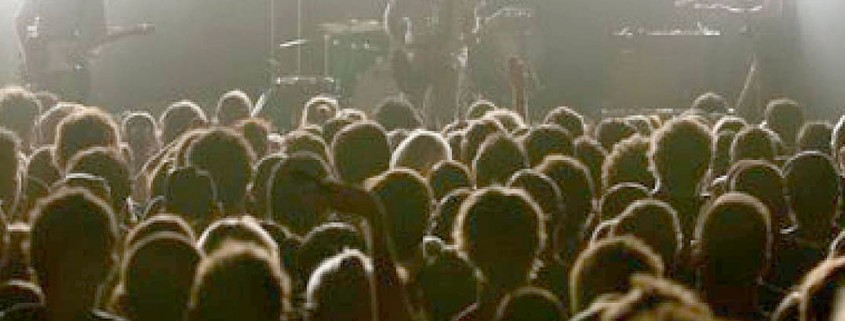Melbourne offers a vibrant and eclectic music scene
Melbourne is not only a tour stop frequented by big names like Kendrick Lamar, Neil Diamond, Sam Smith and Kanye West, but also a hub for musical talent. Famous musicians, including Jet, Olivia Newton-John and The Temper Trap, have their roots in this city.
Music plays a large role in Melbourne culture, particularly with the younger crowd. Music influences the Melbourne lifestyle, as many people revel in the night. Though venues determine where people frequent, the main attraction of Melbourne nightclubs is still the music. Minimalist techno captures the essence of modern Melbourne electronic music. It’s exciting to feel the walls of the clubs reverberate along with the music, with lighting and sound construction incorporated into the experience.
Even the smallest inflections in music can draw variant crowds. As I had previously never encountered the electronic music genre before, I have difficulty distinguishing between the beats. But, throughout my stay here, I have learned that the city is truly a haven for fans of new wave electronic music, as it inspires people to plaster glow-in-the-dark paint over themselves, wear punk clothing or adopt dress codes to create commonality in experiencing the music. Adding to Melbourne’s musical appeal draws from Australia’s growing presence in the global scene, with artists such as Flume debuting in Sydney. Flight Facilities, Will Sparks and Karpe Diem are some known Aussie DJs that are gaining traction globally.
The music inspires Melbourne’s famed dance, the Melbourne Shuffle. One of my goals before I leave is to master this iconic dance move of the ’80s music scene. The Melbourne Shuffle involves full body movement synched to music and is individualized based on the person. I have encountered several variations, as people include lights and incorporate other moves in their take.
The streets, however, are also home to aspiring musicians. The city boasts an active street culture that makes everyday life more vibrant. Simultaneously, however, the State of Victoria is rather protective in discerning what type of expression are admissible, with safety the largest concern. Buskers — people who engage in a variety of activities including singing, miming and dancing — are licensed entertainers who can perform in the general area. Buskers include those who draw on pavement or paper in the public.
Even with a license that lasts for three months to a year, buskers still have to plan when and where specifically they will hold a performance in coordination with other buskers to avoid overlapping. The Bourke Street Mall, a heavy foot traffic street in the Central Business District, is reserved for only professional buskers. To acquire this license, buskers must demonstrate that they can perform for 30 minutes straight without repeating material and that their main source of income is from busking. They also must perform and audition for their talent to be reviewed.
One day while walking through the streets, I stumbled upon a melody quite unlike anything I had previously encountered. A female musician, Tash Sultana, stood in the center, mixing tracks with beatboxing she recorded on the spot, strumming her guitar and captivating the audience with her voice. Soon a traffic jam started as onlookers crowded around Sultana — her guitar case was quickly overflowed with notes and change. When I immediately followed her on Instagram, I felt as though I was part of the traction that would lead to her rise to fame.
Buskers come in all different varieties, as the street provides a venue for musical experimentation. Street performers take their turns busking and performing in venues, but it was surprising for me to learn that the talent pool is competitive. Performers rely on social media to share performance times and locations, as well as new material. It is exciting to be part of the experience of artist discovery, though sometimes parts of the streets would be better if they remained quiet.
Music festivals and warehouse parties also play a huge role in the music culture of the city. With over five music festivals a month in Victoria culminating in even larger ones that occur in the spring and summer, there is no shortage of opportunity to have a day of live music. In November, the City of Melbourne hosts an eight-day festival, Melbourne Music Week, that celebrates Melbourne’s distinct musical presence. The event hosts over 240 local and international artists performing a range of music including rock, pop, folk, electronic and more in venues, streets, laneways and cafes.
Before arriving in Melbourne, my music palette was limited. The city has expanded my curiosity, created an appetite for exploration and compelled me to stop in the street many a time to listen to the buskers.
Nika Shahery is a junior majoring in international relations and policy, planning and development. Her column, “Aussie Adventure,”
runs Thursdays.

